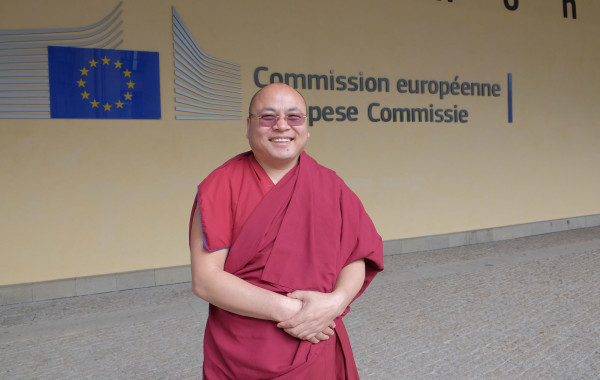
Brussels – Tibetan Buddhist monk and former political prisoner Golog Jigme testified to the European Parliament’s Subcommittee on Human Rights this week about his torture and imprisonment in Tibet and the need for the EU to challenge China’s oppressive policies.
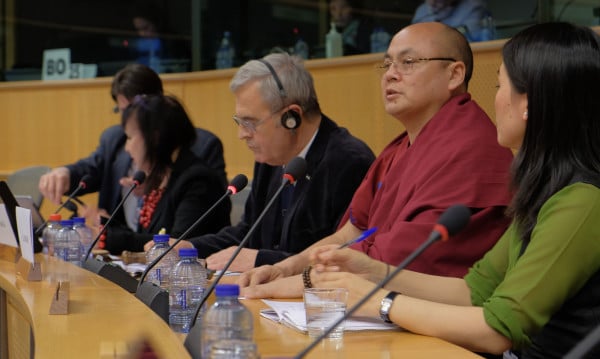
During a visit to Brussels co-organized by the Office of Tibet in Belgium and the International Campaign for Tibet, Golog Jigme also met high-level representatives of the European External Action Service (EEAS), and other senior officials including the President of the Flemish Parliament, members of the Belgian Ministry of Foreign Affairs, and the Tibet Interest Group of the European Parliament.
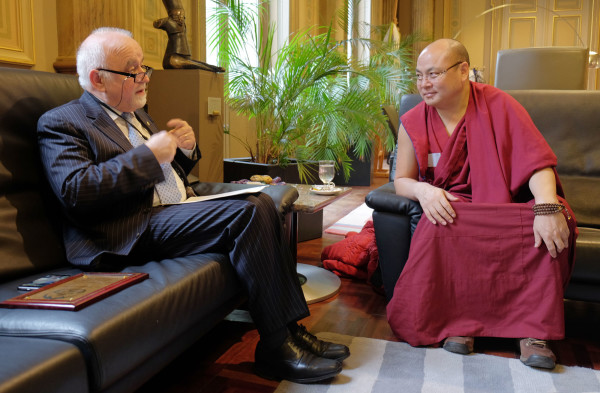
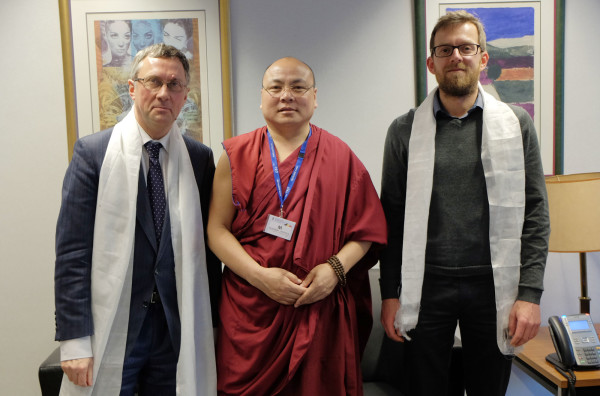
Golog Jigme, also known as Jigme Gyatso, was jailed and tortured after making the documentary “Leaving Fear Behind” in 2008 together with Dhondup Wangchen. He was jailed three times between 2008 and 2012, before escaping to India. He is now living in Switzerland, where he was granted political asylum.
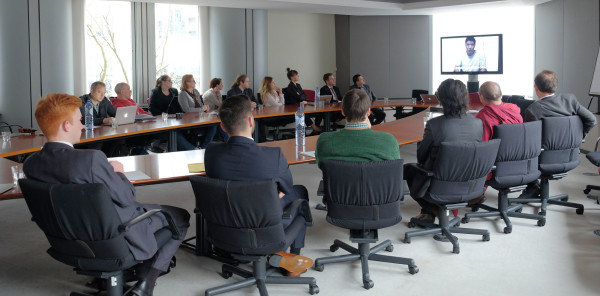
During a meeting with the NGOs FIDH, Amnesty International and Human Rights Watch, Golog Jigme expressed his gratitude for their support for his case when he was in prison.
On March 16, he told the European Parliament’s Subcommittee on Human Rights: “Please do not pretend as if you do not see and hear the Tibetan people’s suffering. Tibet has become like a prison under Chinese occupation. I escaped from this prison. I came to a free country. My body is in a free country but my heart will always re-main with the suffering of my Tibetan brothers and sisters.”
Golog Jigme called China to impose a moratorium on the re-settlement of Tibetan pastoral nomads and to put an end to the annual lockdown of the Tibet Autonomous Region around 10 March.
Golog Jigme told members of the European Parliament: “I urge China to improve the living conditions of the Tibetan political prisoners currently in Chinese prisons and urge the EU to put pressure on China to release all those Tibetans who have been detained and sentenced for peaceful expression of views or non-violent dissent as Shokjang, a young Tibetan writer and blogger sentenced to three years in prison in February (2016).”
At the European Parliament hearing, Joelle Hivonnet, Senior Policy Officer at the China Division of the European External Action Service (EEAS), said: “We were hum-bled by his testimony which unfortunately confirms some of the accounts that we have heard from other people. I just want to stress how important it is for us to have a first-hand witness’ account of what is happening in Tibet, because as you know access is very difficult, especially for journalists and diplomats, and even when ac-cess is granted, as was the case in 2013 for the EU Special Representative for Human Rights, you can imagine that this is actually a very controlled visit.”